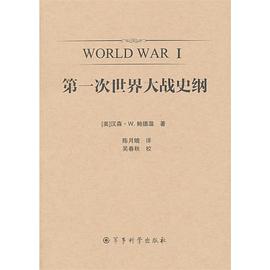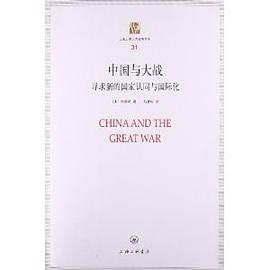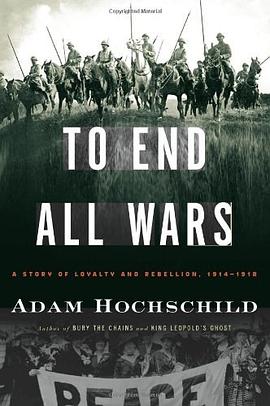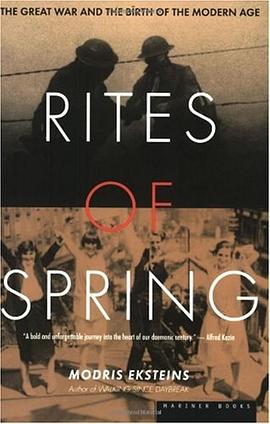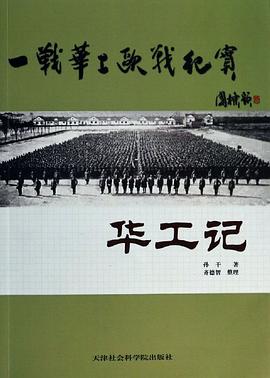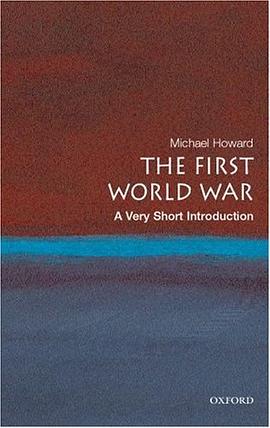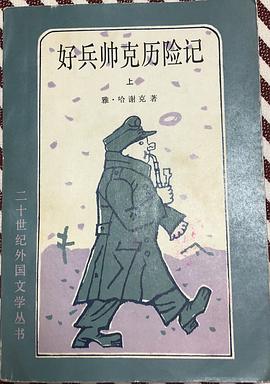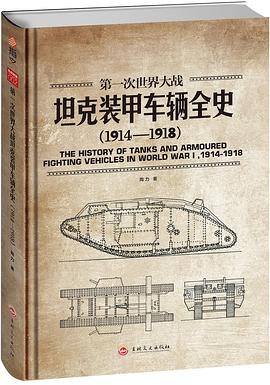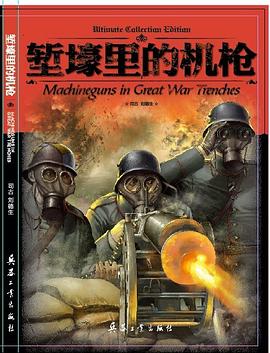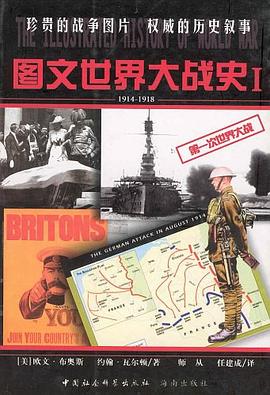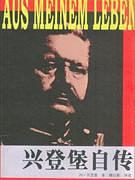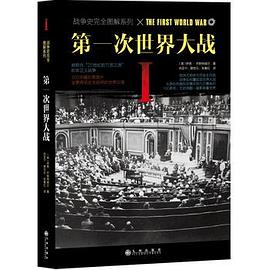
具体描述
The Austro-Hungarian army that marched east and south to confront the Russians and Serbs in the opening campaigns of World War I had a glorious past but a pitiful present. Speaking a mystifying array of languages and lugging outdated weapons, the Austrian troops were hopelessly unprepared for the industrialized warfare that would shortly consume Europe.
As prizewinning historian Geoffrey Wawro explains in A Mad Catastrophe, the doomed Austrian conscripts were an unfortunate microcosm of the Austro-Hungarian Empire itself—both equally ripe for destruction. After the assassination of the Austrian Archduke Franz Ferdinand in June 1914, Germany goaded the Empire into a war with Russia and Serbia. With the Germans massing their forces in the west to engage the French and the British, everything—the course of the war and the fate of empires and alliances from Constantinople to London—hinged on the Habsburgs’ ability to crush Serbia and keep the Russians at bay. However, Austria-Hungary had been rotting from within for years, hollowed out by repression, cynicism, and corruption at the highest levels. Commanded by a dying emperor, Franz Joseph I, and a querulous celebrity general, Conrad von Hötzendorf, the Austro-Hungarians managed to bungle everything: their ultimatum to the Serbs, their declarations of war, their mobilization, and the pivotal battles in Galicia and Serbia. By the end of 1914, the Habsburg army lay in ruins and the outcome of the war seemed all but decided.
Drawing on deep archival research, Wawro charts the decline of the Empire before the war and reconstructs the great battles in the east and the Balkans in thrilling and tragic detail. A Mad Catastrophe is a riveting account of a neglected face of World War I, revealing how a once-mighty empire collapsed in the trenches of Serbia and the Eastern Front, changing the course of European history.
作者简介
Geoffrey Wawro studied at Brown and Yale and is Professor of History and Director of the Military History Center at the University of North Texas. The author of five books, including Quicksand and The Franco-Prussian War, Wawro lives in Dallas, Texas.
目录信息
读后感
看完书,觉得奥匈帝国真是渣,烂到根了 和企业一样,不是一天倒闭的,是慢慢的烂到骨头上,有一天突然倒下了,期间虽然是外人看得到的烂,但其本身而不自知。 对于企业来说相应如此,虽然一个错误不会让企业倒下,但他就像病菌在内部滋长,不知觉发生变化,改变就是潜移默化而...
评分說來有趣,哈布斯堡王朝的奧匈帝國是大戰導火線的一線主角,但通常也是被忽略的最兇的一個。當然啦,其實者不難理解,只配跟義大利搶最弱“列強”的國家,本來就只比路人甲好一點,大戰說穿了其實都只是拿巴爾幹當藉口,就算沒這檔鳥事英法德俄早晚都會找事情自己幹一架先。但...
评分写得很明白. 1. P2 Para2 Line4 一般将Tannenberg译为“坦能堡”吧?简体中文版应注意与港/台版译名间差异的问题 2. P53 Para1 Line4 “德国军士官”中的“德国读着很别扭”,因为读者知道所指并非第二帝国 3. P75 Para3 Line7 不理解“射击在线”是什么 4. P87 Para2 Line2 “...
评分看完书,觉得奥匈帝国真是渣,烂到根了 和企业一样,不是一天倒闭的,是慢慢的烂到骨头上,有一天突然倒下了,期间虽然是外人看得到的烂,但其本身而不自知。 对于企业来说相应如此,虽然一个错误不会让企业倒下,但他就像病菌在内部滋长,不知觉发生变化,改变就是潜移默化而...
评分正好上个月刚读过三本塔奇曼,尽管还没读到《八月炮火》,暂时没有办法以两位作者对同一事件的讲法作比较,但读了这本也已经有此计划,以后会回来补上这一课,现在有点亟不可待先要写几句这部作品。 以纯外行小读者的角度,先说两句译文。从天国之秋追过来,我觉得黄中宪先生的...
用户评价
这部作品的结构设计简直是一场精巧的智力游戏。它采用了一种非连续性的时间线处理方式,不同时期的片段被故意打乱并交织在一起,像是一块被打碎的镜子,读者需要不断地拾起碎片,拼凑出一个全貌。这种叙事手法极大地考验了读者的耐心和专注力,但一旦你适应了这种节奏,那种豁然开朗的成就感是无与伦比的。它更像是一部需要“主动参与”才能完全理解的艺术品,而不是被动接受的故事。更值得称道的是,作者在其中穿插了一些极其精准的文化符号和历史典故,这些元素的运用绝非炫技,而是为故事增添了多层次的解读空间,让整个文本的密度和厚度大大增加。初读可能会感到困惑,但随着阅读的深入,你会发现每一个看似无关紧要的细节,最终都会在某个关键时刻爆发出惊人的关联性,这种精密的布局,体现了作者对文本控制力的绝对自信。
评分这本书的叙事节奏简直让人窒息,作者仿佛是一位精通心理操控的大师,将主角置于一个不断升级的困境中,每翻过一页,你都能清晰地感受到那种步步紧逼的压迫感。它不是那种传统的线性叙事,而是像一张错综复杂的网,信息碎片如同散落的珠子,需要读者自己去串联和解读,这种参与感极大地增强了阅读的沉浸性。尤其在描绘人物内心挣扎的部分,笔触细腻得近乎残忍,你会忍不住去揣摩每一个细微的表情变化和潜台词,仿佛自己也成了那个被困在迷宫里的人。故事背景的构建也相当扎实,那种弥漫在空气中的不安和反乌托邦的冷峻感,让人联想到一些经典的反思性文学作品,但又融入了非常现代和独特的视角,它不直接给你答案,而是将一个又一个尖锐的问题抛向你,迫使你在合上书本后依然久久不能平静地思考。这本书的文学价值毋庸置疑,它挑战了我们对于“现实”和“逻辑”的固有认知,提供了一种近乎迷幻却又异常清晰的阅读体验,绝对是那种值得反复品味,每次重读都会有新发现的佳作。
评分读完这本小说,我最大的感受是“意想不到的温柔”。是的,尽管情节可能充满了冲突和黑暗,但作者对人性深处的探索,那种对“破碎”与“重建”的执着描绘,却透露出一种近乎近乎宗教般的宽容。人物之间的关系处理得极其微妙,没有脸谱化的好人或坏人,每个人都活在自己构建的灰色地带,他们的选择,无论多么令人费解,都有其内在的逻辑支撑。我特别欣赏作者在对话中展现的克制和张力,很多重要的信息并非直白地陈述,而是隐藏在那些看似日常,实则暗流涌动的交流之下,需要读者具备极高的解读能力才能捕获其中的精髓。这本书的语言风格是极其富有画面感的,每一段文字都像一幅精心调配过光影的油画,色彩浓郁,细节丰富,读起来既是一种享受,也是一种挑战,因为它要求你的想象力必须跟上作者文字的速度。它成功地将宏大的哲学命题,融入到最微小、最私密的个体经验之中,使得那些深奥的思考变得触手可及。
评分我通常对那种过度渲染情感的作品敬而远之,但这本书却以一种近乎冷静的、临床般的笔触,探讨了最炽热、最难以言喻的情感体验。作者几乎是用一种人类学家的眼光,去解剖角色们在极端压力下的行为模式。它的魅力在于其对“荒谬”的精准捕捉——在看似失控的局面下,角色们依然试图寻找某种秩序或意义,这种徒劳的努力本身就构成了最深刻的悲剧或喜剧。我非常喜欢作者对环境的描绘,那些场景设定本身就充满了隐喻,它们不仅仅是故事发生的背景,更像是角色心理状态的外化。书中不乏一些令人拍案叫绝的比喻和类推,它们往往非常出人意料,却又一针见血地指出了问题的核心,展示了作者在语言组织上的非凡功力。总而言之,这是一部需要读者沉下心来,仔细咀嚼每一个词语和停顿时机才能真正领会其精髓的深度之作。
评分阅读体验上,这本书给我的感觉更像是一次长时间的深度潜水。开头会让你感到水压很大,需要适应,但一旦你克服了最初的阻力,水面之下的世界将以一种完全不同的色彩和形态向你展开。它成功地避开了所有陈词滥调的叙事陷阱,避免了廉价的煽情或刻意的反转,而是专注于挖掘人物性格的复杂性和情境的内在逻辑。我尤其关注到作者在处理多重叙述视角时的手法,不同的“我”之间存在着微妙的差异和互补,这使得读者对事件的理解永远处于一种动态的、不断修正的状态中,没有什么是绝对的真相。这本书的后劲非常足,它不是那种读完就扔的书,它会像一个温和的幽灵一样在你脑海中盘旋,让你时不时地想起某个段落,某个画面,甚至某个未被完全解答的疑问。它挑战了传统的叙事美学,为当代文学提供了一种令人兴奋的新路径。
评分有点没读懂啊!看到中文版找来读的,这不是奥匈帝国的一战史吗?我还以为会讲整个哈布斯堡王朝的脉络和历史呢。感觉好多细节,淹没了阅读快感,在作者笔下,似乎奥匈帝国的王室、官员,都是蠢货。呃,可能是因为没看懂吧。
评分有点没读懂啊!看到中文版找来读的,这不是奥匈帝国的一战史吗?我还以为会讲整个哈布斯堡王朝的脉络和历史呢。感觉好多细节,淹没了阅读快感,在作者笔下,似乎奥匈帝国的王室、官员,都是蠢货。呃,可能是因为没看懂吧。
评分有点没读懂啊!看到中文版找来读的,这不是奥匈帝国的一战史吗?我还以为会讲整个哈布斯堡王朝的脉络和历史呢。感觉好多细节,淹没了阅读快感,在作者笔下,似乎奥匈帝国的王室、官员,都是蠢货。呃,可能是因为没看懂吧。
评分有点没读懂啊!看到中文版找来读的,这不是奥匈帝国的一战史吗?我还以为会讲整个哈布斯堡王朝的脉络和历史呢。感觉好多细节,淹没了阅读快感,在作者笔下,似乎奥匈帝国的王室、官员,都是蠢货。呃,可能是因为没看懂吧。
评分有点没读懂啊!看到中文版找来读的,这不是奥匈帝国的一战史吗?我还以为会讲整个哈布斯堡王朝的脉络和历史呢。感觉好多细节,淹没了阅读快感,在作者笔下,似乎奥匈帝国的王室、官员,都是蠢货。呃,可能是因为没看懂吧。
相关图书
本站所有内容均为互联网搜索引擎提供的公开搜索信息,本站不存储任何数据与内容,任何内容与数据均与本站无关,如有需要请联系相关搜索引擎包括但不限于百度,google,bing,sogou 等
© 2026 qciss.net All Rights Reserved. 小哈图书下载中心 版权所有


